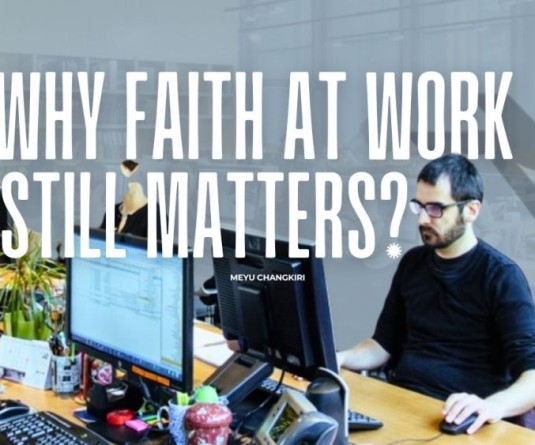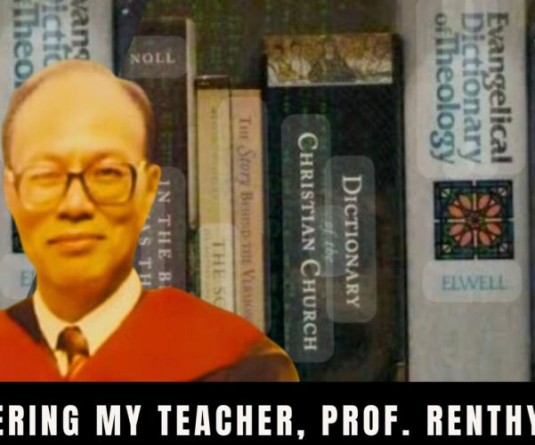
Kedo Peseyie
He was a nice person. You know, what we call a “nice Christian man.” He was a lay leader in his church. He often gave the Sunday morning sermon too and often taught Sunday school. He never missed any meeting, whether it is his church or the villagers union, and always had something to say in every meeting. Many times what he said did not make sense. But you know, because he always had something to say he was what we call a “nice and wise Christian man.”
People trusted this “nice and wise” Christian man and he often held several leadership positions. He was leading a good life, respected at least within his community and church.
Then came the fateful day. Some villagers came to persuade him to contest in the coming general election. He had expected this and even welcomed the idea. But he tried his best to keep a straight face and show some disinterestedness. So after some persuasion, he finally agreed, though he had actually decided to agree a long time back.
Then the first tragedy struck. He was elected. And the next thing he knew, he was roaring up and down the bumpy roads of his little town with four escort cars, two at the front and two at the back. He saw the streets differently through his tinted car classes. They blurred his view and numbed his compassion. The expensive car shock-absorber made him oblivious of the bumpy and dusty roads of his town, and they eventually softened his body.
And the people. They placed upon him the burden of God himself. Every single person who visited him asked him for a favour or for some money. That included his wife and kids. He felt like a god. A miserable god.
Then the next tragedy struck. His presiding over a major financial scam involving a few crores of rupees was exposed. There was no way to run or hide. It was there for all to see. Though it was not reported in the newspapers, the news spread so fast in the grapevine that soon his church, his village and everyone else came to know. It shocked all his colleagues and his friends at the church too. They were shocked not because this “nice, wise Christian man” was involved in such a huge money scandal, but shocked because he was stupid enough to be caught in the act. After the shock reaction subsided, then came the fear and caution.
“Today he is caught. Tomorrow it could be me!” everyone thought to himself or herself. But when they met they were all saying things like, “I guess the temptation was just too strong for him”, “The system needs to be cleansed” and “Are there no Christians around anymore?”
But our nice and wise Christian friend continued his normal life roaring up and down the dusty and bumpy roads of his little town. His car classes were now tinted darker that he could hardly see beyond it, and his car seats now softer that it conditioned his body to the softness of an under-challenged mind and an un-confronted conscience.
The comforts of his little car became his little world he lived in. For him, there was nothing much beyond these comforts. That was the next big tragedy.
Unknown to him and his colleagues at the office and friends at the church, a secret society was investigating what went wrong. They had a divine warrant to delve deep into his mind, his faith and the external systems of government and church he worked under. After a hectic investigation they submitted their report to their authority. I cannot tell you how this report got into my hands, but I have been given the liberty to make it public with the hope that it will help those under similar situations.
One point in the report is the lure of temptations. The power of temptation is great. Our friend underestimated the power of temptation thinking he would easily brush it aside. With that kind of a casual attitude, when the opportunities of his new position opened up to him, he was like a hungry caged lion released into a valley full of vulnerable sheep waiting for him to devour, or like the big lustful city opening itself up to the young teenage college fresher away from parents and eager to explore her sexuality and open herself up the attractions and distractions of the big city. Powerful temptations are nothing new. Powerful victories are as old and even more powerful. We don’t need to be told how powerful we can be. But we need to be aware how bad and weak we can become so that we can be good and strong by depending on a more powerful Being. The lion’s weakness is in its power to devour. Our friend’s weakness was in the power of his political position coupled with a casual attitude toward temptation. The most shocking fact is that our friend did not even see it as temptation, but only as an opportunity to devour. The Christian paradox is this: when we know we are weak, then we are strong. Unfortunately, our lion roared after the wrong thing. His hunger and self-confidence blinded him and he devoured unhealthy and dangerous food.
The report also acknowledged the power of the systems. When this casual attitude meowed against the powerful systems of our democracy, the cat was totally devoured. He simply purred and said “meow” while he should have roared against the system and refused to play by its shady rules. When he should have been the humble and dependent cat he played the part of the proud lion and fell. And when he should have been the proud lion, he played the part of the shy and sexy cat and was caged by the powerful systems. The Christian Gospel places more importance and value in the life of a single individual than in all the powerful systems combined. We need not be caged by systems and play only by their rules. We are free to roar at them if necessary. The Gospel is to be lived out not only in the inner life of the church but in the corridors of the powerful systems as well. It takes the courage of a lion to roar. Don’t be a cat when you can be a lion.
And the other thing in the report was a misconstrued faith. Faith is not a stimulant or a key to achieve some prominence and position in society, as we do sometimes in our elections. Faith is also a way of life. It may lead you to achieve, but more importantly, it should lead you to live by the rules that are higher than any powerful systems in the world. Faith is like living out a story or like writing a story. We are not writing a story about our worldly systems or a story within the systems, we are writing a story of faith that goes beyond and will outlive the world. When you realise how important and big this story of faith is, you will also realise how insignificant and small our world of cars, mansions and position is.





